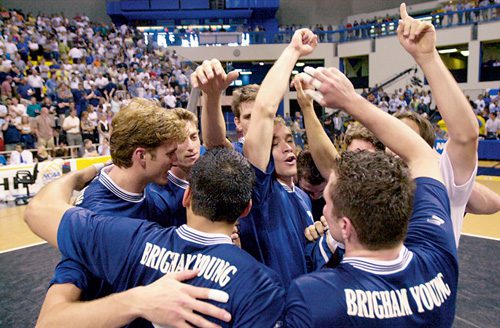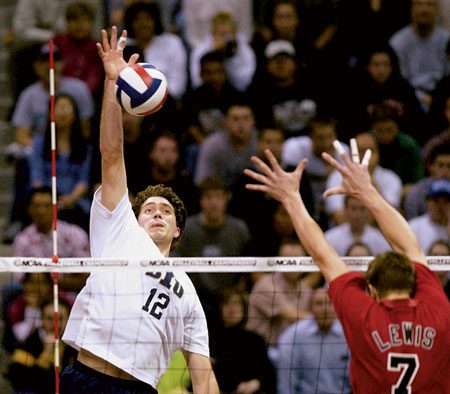By President Merrill J. Bateman
Editor’s note: In April the NCAA board of directors unanimously voted to change its stance in regard to Sunday sports competitions.
The ruling reverses a policy that permitted scheduling allowances in cases where teams from schools prohibiting Sunday competition would be participating in championships. The chair of the NCAA board of directors, Kenneth Shaw, said that while the board is sensitive to schools with such policies, “to single-out Sunday as the only day of accommodation ignores the interests of other schools and places a difficult burden on the management of championship competitions and the academic best interests of other student-athletes.”
BYU officials are disappointed in the decision and are concerned about the potential impact on a number of sports at BYU, said BYU’s athletic director, Rondo Fehlberg. BYU has no plans to adjust its policy against Sunday competition.
Brigham Young Magazine has received the following letter from President Merrill J. Bateman in response to the NCAA’s ruling.
On April 22, the NCAA Division I board of directors eliminated its long-standing policy that allowed flexibility with regard to Sunday play. The so-called “BYU Rule,” the press reported, was no longer.
And while it’s true that only BYU and Campbell University in North Carolina formally objected to the rescinding of the rule, BYU is not alone in observing the Sabbath by setting apart one day of the week for worship, family, visiting, study, and rest. All across America businesses, organizations, and government agencies have made the same decision.
For more than 30 years, the NCAA has honored the beliefs of those schools with policies prohibiting Sunday play. By allowing flexibility, it has recognized that schools should not have to sacrifice athletic opportunities in order to maintain their religious beliefs. During this time, scheduling adjustments to accommodate such beliefs have been rare. But they have occurred, and the NCAA, out of its respect for religious freedom, has allowed these changes.
While the NCAA board of directors has changed its policy, BYU has not–nor will it. For standing by its religious principles, BYU, which has a strong athletic tradition, could be denied entering NCAA championship competitions.
Student-athletes, who have worked their entire lives to reach such a milestone, deserve the opportunity to compete, whether they represent BYU or any other institution. The NCAA for three decades has supported this principle. Why the shift? While other reasons–such as student travel schedules–have been cited for the change, the true reason would appear to be the possibility of enhanced television revenues for such college sports as baseball, softball, golf, tennis, and gymnastics.
And so in a day and age when money increasingly seems to be the dominant motivating factor, the NCAA has made a significant departure from its own principles. Now, unless some flexibility in scheduling is restored, student-athletes will be discriminated against on the basis of religion.
Such a reversal in principle and tradition is not worth the prospect of a few extra dollars. For this reason, BYU, along with Campbell University, is calling for an override vote of the NCAA decision. Division I rules allow the membership to call for a vote to override the adoption of a legislative change. Numerous universities are supporting the call for an override. Upon receipt of 100 requests for an override vote, the legislation will be suspended until final action is taken by the membership.
The university needs the support of its alumni and friends to help convince other institutions to join the override vote. Please contact the Division I schools in your area and ask them to join BYU and Campbell University in this effort.
BYU has long appreciated the NCAA as an association that supports the total development of student-athletes. The revised policy, however, could force institutions that value religious observance to choose between religion and athletics–a choice no institution should have to make.









